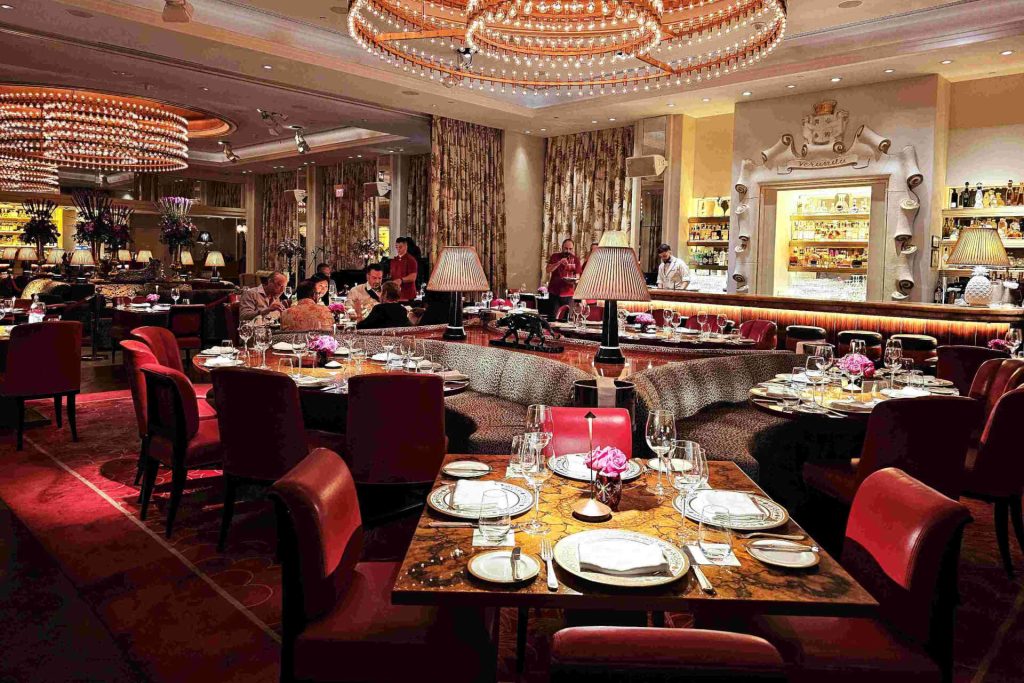
The travel and hotel industry is undergoing a profound transformation, characterized by new guest wishes and a changing market. The industry has recognized that attractive gastronomy creates experiences, raises the profile and thus enables profitable storytelling. Hoteliers are making a fundamental decision: really good gastronomy or a reduction to minimal provision, e.g. through vending machines and kiosks at reception. Digital technologies are playing an increasingly important role: contactless check-in, digital payment methods and robots to assist with cleaning and buffets are on the rise.
Two factors determine the choice of hotel: Experiences or the best location. Guests expect unforgettable moments, be it through unique gastronomy, extraordinary hotel concepts or events with added value such as team-building workshops or creative strategy meetings, preferably in beautiful rooms and unusual hotels in the countryside. For Generation Z, a top location and a top story count above all. At the same time, sustainable, green hotels with energy efficiency and regional cuisine are becoming increasingly important. Sustainability also includes a connection to the local community.
Luxury is being redefined. While some “5-star” hotels are secretly slimming down and actually only operating at 4-star level, others are focusing on ultra-luxury such as Rosewood and Six Senses or on exclusivity such as Aman Hotels and club character such as Soho Home. Lean luxury with a lean, sustainable lifestyle is particularly popular with the avant-garde and younger travelers. New players such as Limehome combine minimalism and digitalization and transform commercial spaces into functional hotels with well-designed rooms without their own gastronomy, but with cooperations with external providers.
The wellness trend is booming, particularly in the premium segment with a focus on longevity and medical wellness, such as at the Lanser Hof. High energy costs require modern technology and consistent positioning with a holistic wellness concept. A little wellness no longer works.
Short trips and sustainable travel are gaining in popularity, as is digital detox on an off-line vacation. More and more cities, such as The Hague, Amsterdam, Barcelona and Venice, are restricting tourism and relying on sustainable practices, such as limited cruise ships and targeted anti-advertising, to regulate tourism and protect the environment. At the same time, hotel prices are rising, especially in major international cities such as New York, while new usage concepts such as multi-use properties – for example Hamburg's Bunker with hotel, offices and leisure facilities – are enriching the market.

There is a tension between digital progress and emotional hospitality that is redefining the restaurant industry. AI, automation, and data-based processes are changing not only workflows, but also attitudes, communication, and expectations. What was once considered a gimmick is now becoming a strategic necessity. And perhaps the most important question of our time: How can humans remain relevant in a world that is becoming increasingly digital?
Pizza is one of those dishes that everyone has an opinion about. Almost everyone thinks they understand it—and yet a surprising number of people fail at this culinary “common property”. In Vienna and beyond, Neapolitan pizzerias are now springing up everywhere, some excellent, others whose interest in good pizza comes to an abrupt end. As we all know, quantity does not equal quality. Or, to quote Martin Albrich from the First Vienna Pizza Association: Pizza is bread. And bread forgives nothing.


The travel and hotel industry is undergoing a profound transformation, characterized by new guest wishes and a changing market. The industry has recognized that attractive gastronomy creates experiences, raises the profile and thus enables profitable storytelling. Hoteliers are making a fundamental decision: really good gastronomy or a reduction to minimal provision, e.g. through vending machines and kiosks at reception. Digital technologies are playing an increasingly important role: contactless check-in, digital payment methods and robots to assist with cleaning and buffets are on the rise.